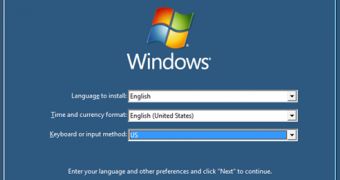We're weeks away from the official debut of the brand new Windows 8 and, beside the obvious visual changes, the new operating system will also bring several speed improvements.
Windows 8 installs faster than the current Windows 7 and, what's more, it takes less space on your hard disk.
Microsoft Windows Deployment Marketing Manager, Michael Niehaus, revealed some very interesting figures during the TechEd 2012 Deploying Windows 8 session in the Gold Coast, Queensland, emphasizing that this brand new operating system was specifically developed to be faster than its predecessors.
To get straight to the point, installing a fresh copy of Windows 7 on a virtual machine takes 15 minutes, while the same operation with Windows 8 requires only 10 minutes to complete.
When it comes to the space its needs to copy all of its files, Windows 8 is again better, as it expands to 7.76 GB, compared to Windows 7 that takes around 8 GB of your storage space.
Since Microsoft expects many Windows users to rely on the upgrade feature, company engineers focused on this area too, so moving from Windows 7 to 8 takes less time than migrating from Vista to 7. The whole process should come to an end in 20 minutes, while the Vista – Windows 7 upgrade needs 30 minutes.
“There have been some fundamental changes to the upgrade process that will improve the upgrade time regardless of how much you throw at it,” Niehaus was quoted as saying by ZDNet.
Interestingly, the operating system is not the one “responsible” for the aforementioned speed improvements. The boost is actually possible thanks to several new deployment tools, such as Microsoft's user state migration tool (USMT) 4.0 and Windows pre-installation environment (PE), both of which will be integrated in the Windows 8 installer.
The brand new Windows 8 will go live in October and, according to Microsoft officials, the upgrading process should go very smoothly as long as there are no software or driver incompatibilities.

 14 DAY TRIAL //
14 DAY TRIAL //